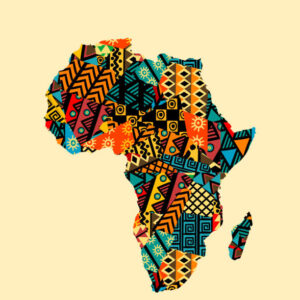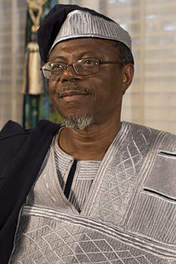By Toyin Falola
Africa’s history cuts across the ancient period, precolonial formations, slavery, colonial, post-colonial, and developmental stages hatched and told by both African and foreign scholars. Today, countless materials exist on Africa from the beginning of humankind down to the 21st-century realities. While these multiple documentations and narrations signify an interesting deal for Africa, especially in scholarly gatherings, varying perspectives are always welcomed. The edgy thing, however, is the different narrations informed by contrasting ideologies about Africa and Africans. For instance, in his 1878 book, Through the Dark Continent, Henry M. Stanley described Africa as “the dark continent,” and Walter Rodney, on his part, pushed the blame of the underdevelopment of Africa on the donkey years of slavery and colonialism.
Presently, it appears that the goal has shifted from narrating history to creating an ideology that redefines Africa’s history and predicts a gloomy developmental future. For years, the narrations have followed almost a defined route that strongly reduces Africa to the poverty capital of the world whose development, if it happens at all, will require a long shot of luck from internal revolutionary transformation and a halt to the illicit flow of resources out of the continent. Considering some of the realities of the continent, one may see the point of such an exercise of pessimism in the growth and development of Africa. But this is only because the whole truth and resurging realities about Africa are not being consumed.
I do not want to sound like an overly excited optimist, but I believe that while Africa might have its torrents of problems, there are enough abundant opportunities for growth and development. I believe that though Africa’s problems are genuinely problematic, if we calmly consider the realities, we can take cognizance of the landmark achievements being made in the continent, which have created huge potential for development over the years. Again, since the goal is to review the ideologies and change the narratives about Africa, I feel it is important to tour the route that connects us with the past and present and consider how resurging realities in Africa can make a change for the future.
I will like to recognize the gradual movement of Africa from a so-called “dark continent” to one that is beginning to hinge closer to the “bright continent.” In recent times, even though the narration is still greatly unchanged, the fact remains that Africa has always been a key driver of global changes, and evidence from the continent has shown not just progress in this light but a strong indication of continuity. However, like in every region of the world, this growth and development are quite complex and difficult to explain. Nevertheless, if we are willing to redefine the ideology that pitches Africa as a stagnant continent and then change the narrative, we must highlight the forces that make the growth of Africa into a world player plausible.
 Walter Rodney
Walter Rodney
Since the turn of the 21st century, there has been a gradual movement from the global status quo. The change started with China and India’s economic recovery, gradually flipping the switch and thrusting them to the centre of the global stage. The idea that all powers belong to the West is fast declining. Some revolutionary rises are happening across the rest of the world, and Africa is transitioning from its backstage position to being a driver of global changes. It is not a mistake that Africa is the fastest growing continent in the world, with the youngest population and projections of maintaining rapid demographic shifts. Although it is difficult to predict a general outcome for a continent as diverse as Africa; however, if there is anything to be learned from the developmental power behind demography, it is that if managed properly and the development of human resources is heavily invested in, there will be a transition for Africa, at least, for the rest of this century.
While the scale of positive indices for development in the 21st century tilts towards Africa, it is important to understand that this is also not automatic. Rising populations encourage increasing competitiveness that can promote the continent’s growth, but this is only made possible if there is a great investment in population development. Therefore, it means that as long as there is a strong adoption of policies that will help create socioeconomic systems to support the complex mix of investments in and development of human capital through the mechanisms of labour supply, high-quality education, skill acquisition, and health care, the potential for growth and democracy in Africa would be geometrically triggered.
Even if we rightly recognize the power of human and natural resources in Africa, getting them to beneficial use is not easy, especially where quality leadership is out of the equation. Africa has had its fair share of bad leadership. In many parts of the continent, there are still wide lacunas in the leadership style needed to drive developmental changes. Of course, there is no perfect leadership anywhere in the world, and Egypt, Mauritius, and South Africa are creating stability in some aspects, but more is required. The leadership that drove the establishment of the African Continental Free Trade Agreement (AfCFTA) and its gradual implementation is an indication that with good leadership in the continent, the narrative in Africa can shift from one of an economy-impoverished continent to that of trade liberalization, tariff reduction, and GDP spike.
Aside from this, revolutionary changes are happening in the technology and innovative industry. In the last couple of years, there has been a fast rise in the number of startups creating solutions to African problems in Africa. Nigeria, Kenya, South Africa, and Egypt lead the solution-driven startup sector, creating and implementing varying answers to dynamic African problems. In 2021, a total of $1.9 billion was raised by startups in Nigeria, Kenya, South Africa, and Egypt, accounting for about 92% of the investments raised in Africa that year. This suggests that Africa is gradually becoming a potential venture capitalist investment location for technology-driven solutions. This progress in technology and innovation is gradually spreading to other countries on the continent. If sustained with the right policies, an enabling environment, and investment in upskilling the young population, there are great chances that this will also change the narration of African stories.

Another adequate resource that can help change the narration of the continent is the diaspora. One of Africa’s greatest strengths is its global diaspora, formed in repeated waves of emigration from the continent after establishing the modern world system. These diasporas have challenged and established different revolutionary struggles and groups whose commitment has been channelled towards the development of Africa and the pursuit of justice. The activities of these people, at home and abroad, are eradicating negativities from Africa and changing how the world views Africa. As a result, it only follows that this should be sustained and a more enabling environment and support be provided for the African diaspora.
The creative industries have a critical role in these, especially in forging a Pan-African identity. The resurgence in Africa’s cultural identity and consciousness indicates imminent transformation across the continent, particularly when the global emphasis is placed on creating and preserving cultural and artistic resources. We must understand the intricacies of Africa’s cultural resources, including the existing cultural materials and resources, the production process, historical, political, and aesthetic angles, and the potential for expansion.
* Excerpts of the lecture delivered by Prof Falola at the Africana Studies Week University of Tennessee, Knoxville, on September 26, 2022


